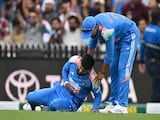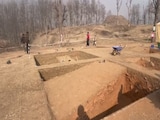National Cancer Awareness Day, observed on November 7 each year, aims to raise awareness about cancer prevention, early detection, and treatment. Recognised since 2014, it encourages people to educate themselves about cancer risks and the importance of early screening, which can significantly increase survival rates. The theme this year is "Hope, love, and strength: our weapons against cancer!". Cancer is a major health concern in India, with rising cases annually, and early awareness can help reduce the burden. The day is dedicated to informing the public about lifestyle changes that can help reduce cancer risk and promoting timely check-ups, which are crucial for catching the disease in its early, more treatable stages.
Have you ever wondered how many lives may have been touched by cancer? You may not have a specific number, but I believe you'd agree when I say that everyone knows someone affected by this disease. Such is the profound impact it has on our lives.
Every day, I walk alongside lives touched by cancer. As a psycho-oncologist, my role goes beyond the clinical aspects to connect with patients on a deeper emotional, social, spiritual, and psychological level. In this journey, cancer has deeply impacted me as well, leaving a lasting impression on how I view life. Some stories inspire, others are poignant, yet all remind me of life's fragility.
The psychological aspect of cancer journey
Thanks to advances in medical science, our fight against cancer has come a long way. What was once a terminal diagnosis is now, for many, a challenging yet surmountable chapter- a path more and more people tread to reclaim their lives. My work involves guiding patients through the challenging terrain of their treatment journey. There is no one-size-fits-all approach; each person's journey is unique. Each patient brings their own experiences, fears, and strengths, and my role is to honour their story, empowering them to face the road ahead.
By the end of this, I hope to share insights from my close experiences with cancer, insights that may offer you a sense of empowerment. I want to share a story of hope and resilience, for these qualities uplift not only the patient but also their entire circle of loved ones.
A year ago, I got referral, this was a case - an eminent scholar and his wife, known for her iron-willed personality and had a strong resistance to treatment. I could almost picture the situation. Without hesitation, I decided to meet her first.
As I walked into her room, she interrupted me before I could speak. “Who are you? Are you the psychologist?” I nodded slightly, trying to maintain my composure. But she didn't wait for my response, declaring, “Darling, please leave! I've been in control my entire life, and I know exactly how to deal with this. I don't need a therapist to tell me how I feel.”
That was our first meeting - a woman in her 50s, strong and assertive, with a posture that radiated control. I could feel the weight of her past authority and pride, along with her intense reluctance to confront this new vulnerability. Yet, I knew this was exactly where our work needed to begin.
I left politely, saying it was fine if she didn't want to meet but that I'd be around if she changed her mind. Over the next couple of months, I had a few meetings with her husband a few times, but she continued to avoid me. Then one day, we crossed paths in the hospital lobby during her chemo days and exchanged pleasantries. She looked slightly weaker, and when I asked how she was, she simply gestured, “You can see how I am”. I left them with reassuring words, saying I'd heard of her good progress and that all was well.
To my surprise, she asked me to meet again. What began as a casual chat turned into a profound, two-hour conversation. She opened up about how breast cancer had reshaped her life, forcing her to rely on others - a difficult reality for someone who had always been a supporter and a leader. Struggling with her diagnosis, she hesitated to share it with her loved ones, viewing herself as someone dedicated to well-being and a healthy lifestyle. For a long time, she was not ready to accept her condition and withdrew from social interactions altogether.
Through our sessions, she gradually softened. She expressed gratitude to those around her and began embracing her treatment with a positive outlook. This shift not only contributed to her well-being but also brought immense relief to her caregivers, who felt her strength and hope lift them as well.
Our society still harbours deep-seated fears about cancer, casting a long shadow. Despite her own merits and qualifications, she became entangled in a limited understanding of the disease. The thought of surgery and its body image implications haunted her. By not remaining open to understanding her condition, she endured emotional suffering that could have been avoided.
While some uncertainties about cancer treatment effectiveness remain, I believe we're moving toward a future filled with hope - a future where cancer need not evoke despair. Cancer is no longer a hopeless diagnosis; it can be met with courage, resilience, and the necessary support to face it.
Though her transformation came from within, as a psycho-oncologist, I helped her channel emotions she had kept hidden. Often, we assume that people who control their lives can also control their emotions, but true strength lies in allowing ourselves to feel. Acknowledging our emotions - good or bad - opens the door to healing. Change must come from within; we are merely guides along the way.
She completed her treatment and celebrated her victory over cancer with her family and friends. Her daughter told me she seemed more content and perhaps even happier in this post-treatment phase than before.
Cancer treatment isn't just a physical battle; it's an emotional one too. The strength to face these emotions is as vital as the medical treatment itself. Psycho-oncology supports this balance, helping patients cultivate resilience. Our thoughts, feelings, and memories shape our responses, and we must remember that the grass is green where we nurture it. Our minds work in much the same way. We become what we feel, and it's up to us to guide our thoughts and actions, some of us may need support along the way, while others may not.
Disclaimer: This content including advice provides generic information only. It is in no way a substitute for a qualified medical opinion. Always consult a specialist or your own doctor for more information. NDTV does not claim responsibility for this information.















